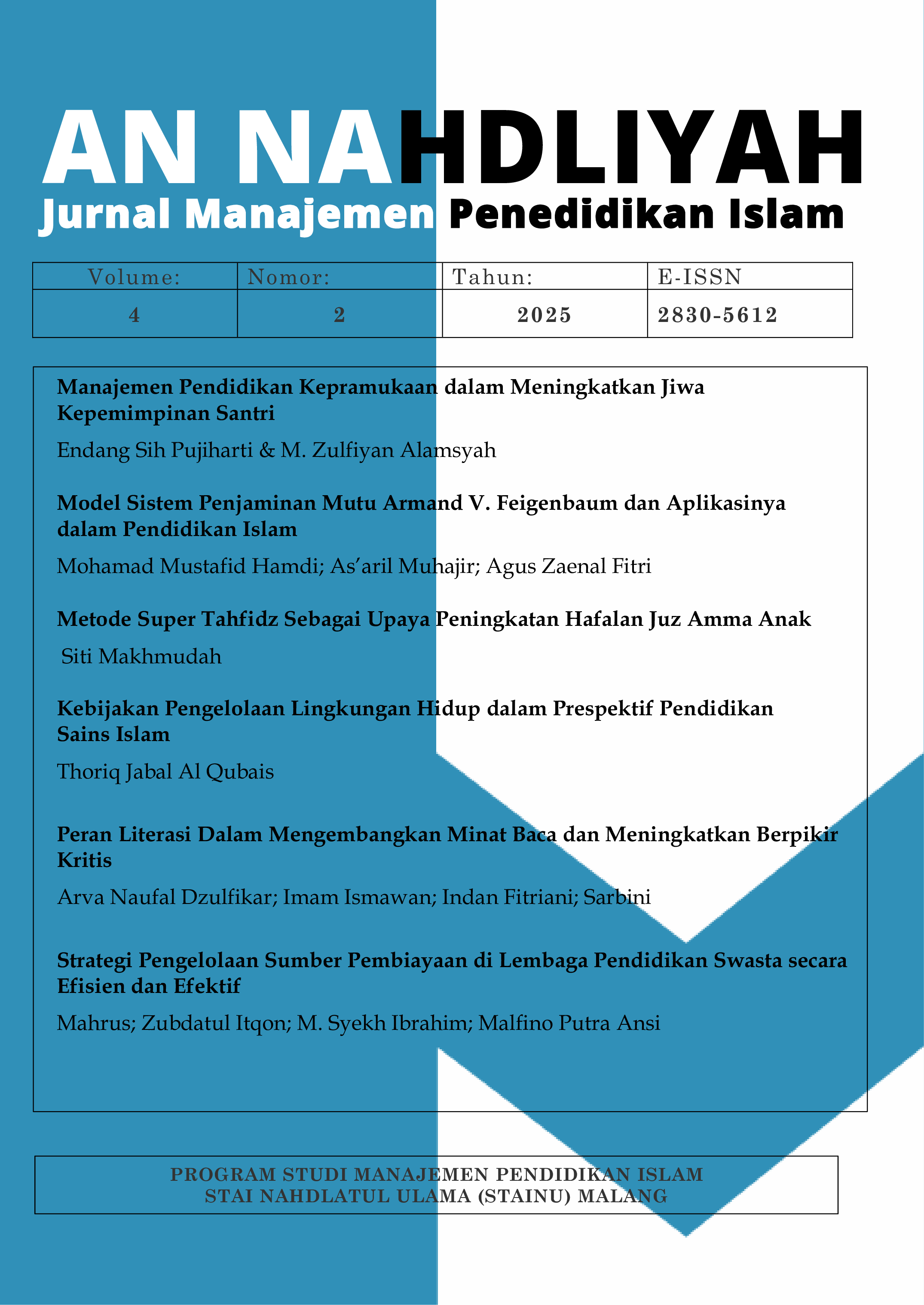Model Sistem Penjaminan MutuArmand V. Feigenbaum dan Aplikasinya dalam Pendidikan Islam
Kata Kunci:
Quality assurance, Feigenbaum, Islamic education, Total Quality Control, Quality cultureAbstrak
This article explores the quality assurance model developed by Armand V. Feigenbaum through the Total Quality Control (TQC) approach and analyzes its application within Islamic education management. The study uses a library research method by reviewing relevant literature on quality management and Islamic education. Feigenbaum emphasizes that quality is not solely the responsibility of top management but of every member within an organization. In the context of Islamic education, this perspective aligns with Islamic values that promote collaboration and collective responsibility. The findings indicate that the TQC model can be applied contextually in Islamic educational institutions by involving principals, teachers, administrative staff, students, and parents in building a culture of quality. The application of key TQC principles—such as continuous improvement, process-based evaluation, and inclusive participation—can enhance the institutional effectiveness and competitiveness of Islamic schools. When integrated with Islamic values such as trustworthiness (amanah), excellence (ihsan), and consultation (musyawarah), the Feigenbaum-based quality assurance system offers a sustainable framework for institutional development.
Unduhan
Unduhan
Diterbitkan
Terbitan
Bagian
Lisensi
Hak Cipta (c) 2025 Mohamad Mustafid Hamdi, As’aril Muhajir, Agus Zaenul Fitri (Penulis)

Artikel ini berlisensi Creative Commons Attribution-NonCommercial-NoDerivatives 4.0 International License.





